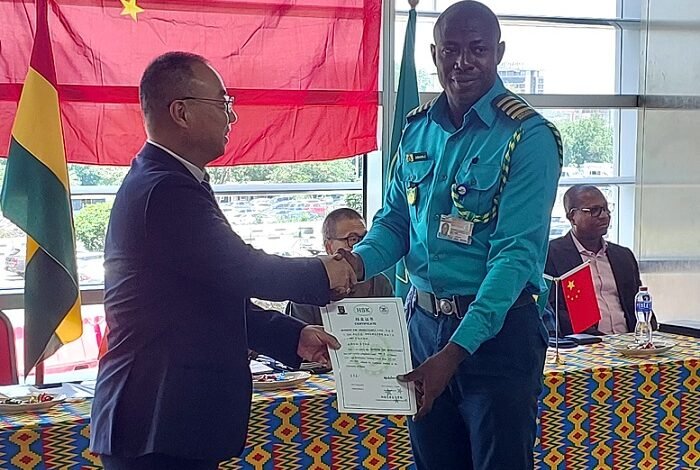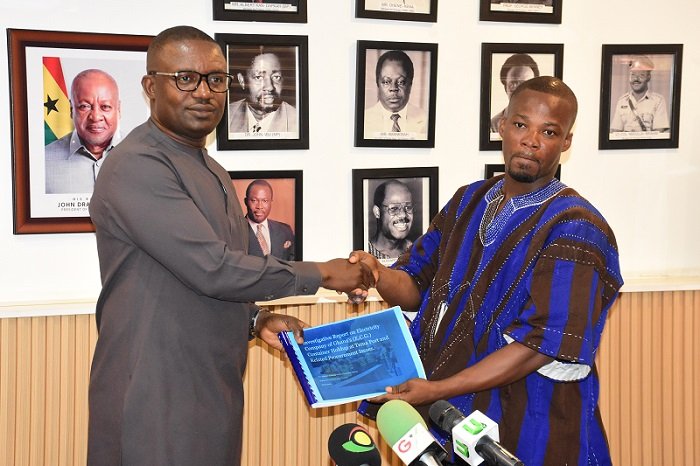
The Ghana Immigration Service (GIS) has trained a second batch of 19 officers in the Chinese language to improve communication and efficiency at immigration checkpoints in the country.
The training is designed to provide officers with basic language skills to help them communicate effectively with Chinese travellers and residents.
At the graduation ceremony held at Kotoka International Airport in Accra yesterday, the Accra Regional Commander of GIS, Deputy Comptroller of Immigration Edith Arhin, highlighted the importance of language skills in immigration work.
She noted that Ghana attracted a large number of Chinese nationals for business, tourism, and cultural exchanges, adding “Effective communication is key to providing quality service and managing the increasing number of Chinese visitors.”
“The training aimed to equip officers with basic Chinese language skills to enhance their interactions with Chinese travellers and residents,” she said.
She reaffirmed the GIS’s commitment to investing in language training and other capacity-building programmes for its officers, “With the successful completion of this second batch of training, plans are already in place to continue such initiatives in the future.”
“The ability of immigration officers to communicate in Chinese will not only improve service delivery but also strengthen Ghana’s position as a welcoming destination for international visitors,” he added.
The Director of the Confucius Institute, University of Ghana, Professor Jim Wang, praised the officers for their dedication and enthusiasm.
He acknowledged that learning a new language required patience, discipline, and a willingness to step out of one’s comfort zone.
He commended the officers for embracing the challenge and emphasized that their new language skills would help them build bridges between cultures and improve international cooperation.
Professor Wang also noted that the Ghana Immigration Service was not only responsible for border security but also played a crucial role in promoting cultural diplomacy.
He expressed the hope that the partnership between GIS and the Confucius Institute would continue, allowing more officers to enhance their language skills.
He also encouraged the officers to consider taking further Chinese language exams in the future.
Certificates were presented to the officers who successfully completed the training, with special recognition given to outstanding performers.
The officers expressed appreciation for the opportunity and pledged to apply their new skills to improve their work.
The Chinese language course, which lasted 12 weeks, was organised in collaboration with the Chinese Embassy and the Confucius Institute at the University of Ghana, Legon.
BY AGNES OPOKU SARPONG












